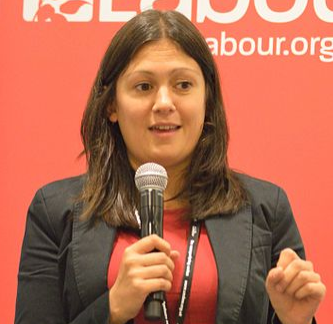Many Trotskyists see their tradition as part of the anti-Stalinist left. Alan M. Wald (The New York Intellectuals: The Rise and Decline of the Anti-Stalinist Left from the 1930s to the 1980s [University of North Carolina Press, 1987] p.6) goes so far as to argue “Simply put, without Trotskyism there would have never appeared an anti-Stalinist left among intellectuals in the mid-1930s.”
When considering Soviet anti-Zionism, It is important to note, as Robert Wistrich points out, (The Left Against Zion: Communism Israel and the Middle East [Valentine, Mitchell & Co, 1979] p.274) the following:
the anti-Zionism of the first, post revolutionary years was on the whole untainted with antisemitism. The resolution of the Soviet government ‘On the Uprooting of the Antisemitic movement’ (27 June 1918) and Lenin’s famous speech against the pogroms (recorded on a phonograph in March 1919) with its ringing cry ‘Shame on those who sow enmity towards Jews, who sow hatred toward other nations’, had been unequivocal in tone. Lenin’s emphasis on the progressive and internationalist role of the Jewish intelligentsia and on the class solidarity of Jewish ‘toilers’ with the proletariat of other nationalities was based on warm sympathy as well as a shrewd analysis of the objective situation. Moreover, he was genuinely outraged by the anti-Jewish libels and persecutions of the Tsarist regimes.
Emphasising his point, Wistrich adds (ibid., p. 276):
The anti-Zionism of this period was indeed scarcely sharper in tone than Bolshevik condemnations of other forms of national separatism in Soviet Russia or movements such as Pan-Islamism and Pan-Arabism in the Middle East, which were seen as equally reactionary and anachronistic.
This was all to change and, as is well known, the anti-Zionism of the Soviet Union became increasingly sinister and overtly antisemitic. It is not surprising that some of this offensive material is currently available on neo-Nazi web sites.
To this day Trotskyists will often denounce their opponents as Stalinist, especially if they have acted in a sectarian manner to exclude their own variant of Trotskyism. Given that Stalin was responsible for ensuring that their hero’s life was terminated via an ice-axe being plummeted in his cranium, it is safe to assume that a Trotskyist accusation of being a Stalinist is designed as an insult.
The Alliance for Workers’ Liberty and its forerunner, Socialist Organiser, have had a tradition dating back to the 198os where they have had a particular focus on left-wing antisemitism. It is no surprise that some of the key people who have been involved in the Engage project, one dedicated to opposing left-wing antisemitism, have, at some stage in their lives, been associated with Socialist Organiser. The AWL have published some excellent articles that should be read by anyone interested in the subject of left-wing antisemitism. One article on this subject, “The Stalinist Roots of left-antisemitism,” written by Stan Crooke that was published in Workers’ Liberty No.10, May 1988 is now available in full on line. It is not a short article, but it is worth reading in its entirety. Crooke used some classic examples of Soviet literature to make his point, one denied by some on the left, that such a thing as left-wing antisemitism can exist. While the article utilises examples from the Soviet Union (“Stalinist”), the unsigned introduction makes clear that the “anti-Zionism” of so-called Trotskyist organisations such as Socialist Action and the Socialist Workers Party bears a striking resemblance to the “anti-Zionist” material that was published in the Soviet Union.
I certainly recommend that Crooke’s article, which must have taken quite some time to research and write, is read in full. Below I provide a couple of Crooke’s examples from his selections of Soviet anti-Zionist literature.
D. Soifer (1980) “The Collapse of Zionist Theories” p.59:
[The economic basis of Zionism is] the most powerful financial industrial-monopolies of the West… Economic conferences of Jewish millionaires are capital united on a world scale, used to exert pressure on states and governments in a series of capitalist countries in pursuit of political goals.
V. Kiselev et al. (1977): International Zionism: History and Politics, p.15
the system of organisations of international Zionism (which extends throughout the entire world and, at the same time, is strongly centralised) united with a powerful financial-economic base in the shape of the monopoly bourgeoisie of Jewish origin… is the main source of strength and activity of Zionist influence on the politics of a series of leading capitalist states. At present, international Zionism… given the depth of its penetration into the most variegated spheres of political, economic, and social life of the capitalist countries, has no equal amongst the other bourgeois-nationalist and anticommunist currents and detachments of world reaction.
As Crooke concludes, in the eyes of Soviet propagandists:
None of this, of course was anti-semitism. It was simply ‘anti-Zionism’.


